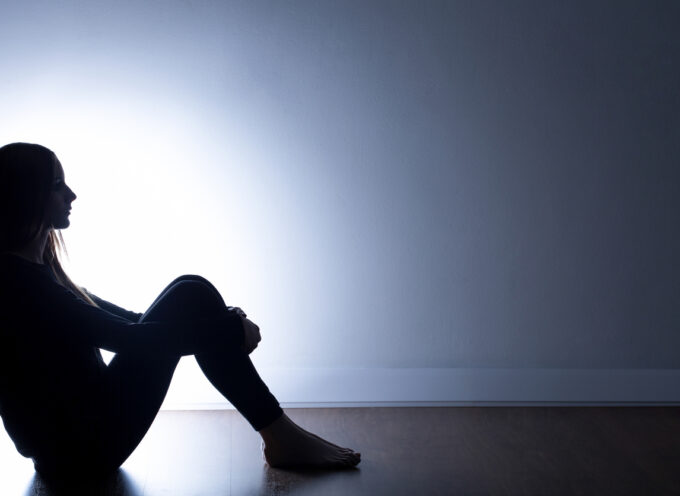Recently, I came to the sad conclusion that I would need to sell my beloved Jeep Wrangler. Over the course of a couple of months, the warning light formation on my dash display had started to look a lot like Clark Griswold’s house in Christmas Vacation.
One light in particular concerned me: the light that signaled a problem with my engine block. When I took the Jeep in to a mechanic, I inquired about that particular warning light: “What’s wrong with the engine?” To that, he answered, “Well, it’s complicated. He went on to explain that the Jeep’s power starts in the crankshaft, and then is delivered through torque-converter to the transmission, and then in turn to the drive shaft and on through to the drive axle.
By that point, my eyes were glazed over. Then he continued, “And you see, you have problems with at least six components of your engine. So, it’s complicated, and I recommend you sell this thing immediately, even today if possible.” And so I did.
“It’s complicated.”
That was an excellent short-hand summary of why the dash lights in my Jeep were lit up like a Christmas tree. It’s also an excellent response to the question a depressed person might ask his doctor, therapist, or pastor: “Why are all of the warning lights on my emotional dashboard blinking like Clark Griswold’s house?” The answer: “It’s complicated.”
Indeed, when various warning lights—moodiness, loss of interest, weight loss, weight gain, insomnia, fatigue, feelings of worthlessness, diminished ability to concentrate, recurrent thoughts of death—appear on our personal “dashboard” mental and emotional dashboard, we want to know why. What is causing my depression? And, like warning lights on the dashboard of an automobile, the potential causes are many.
The Many Causes of Depression
Depression strikes at the heart of who we are. And who we are has a long and complex history. Our personality and dispositions, our emotional and physical health, and our spiritual condition don’t just pop up out of nowhere. They have a history and they have reasons. They involve events that happen outside of us, physical phenomena within us, and beliefs and interpretations that reside in our minds.
For that very reason—the fact that who we are has such a long history—we can begin to feel like depression suits us. We’re used to it. It’s like an old friend who is not the best friend in the world but, oh well, they’ve sure stuck with us for a long time.
Thus, when we search for the causes of depression, we should expect that it will often be complicated. The causes for depression can vary and often a person’s depressive state stems from a complex combination of several causes.
Depression can be caused by chemical imbalances. The disciplines of psychiatry and psychology are still relatively young, however, and there is much that is not known. Doctors and therapists cannot diagnose a chemical imbalance with the same confidence that a cardiologist can diagnose a blocked artery or an orthopedic surgeon can diagnose a torn ACL. Yet, there is a consensus that, somehow and in some way, chemical imbalances can be the cause of some people’s depression.
Depression can be caused by cataclysmic events that happen to us. Consider the high instance of people who experience some measure of depression in the wake of abuse, divorce, job termination, or the loss of a loved one.
Depression be caused by other people in ways that are less dramatic than the instances outlined above. Often, we can easily identify these instances, as in the case of a high school student who has for years been ostracized or bullied by peers at school. Other times, it can be more difficult to identify, as in cases where other people have become so distant or their sins against us so habitual that we don’t perceive those persons’ actions as a serious offense.
Depression can be caused by our own character flaws and bad decisions. It could be caused by a singular and significant action that we regret, or it could be caused by a lifetime of bad decisions.
Depression can be caused by our own inability to respond to life’s hardships. Hardship doesn’t have to cause depression. But often it does because we don’t possess the mental, emotional, or spiritual resources to frame those hardships the right way or to respond to them in a healthy manner.
The Cultural Context for Depression
Social scientific studies have shown a dramatic uptick in cases of depression among Westerners over the past century. Thus, it is reasonable to infer that there is something about Western culture that tips many people toward depression.
Psychologist Ed Welch asks us to imagine a person asleep on a float, who awakens to find that a rip current has taken her to sea. This is like individuals in the West, who are asleep with regard to our cultural context, and who suddenly find that Western ideological currents have taken us “out to sea.”
Consider the United States, one particular cultural context within Western civilization. Given the high instance of depression among our population, it is accurate to say that American culture provides a lush environment for the profusion of depression.
Unlike most global cultures, Western culture is highly individualistic. Rather than living communally, we tend to be highly mobile, disconnected from extended family and familial locations. For this reason, often we are never embedded in an inherited context in which we must learn to live and work together with a particular community of people.
This type of individualism sets the context for depression. As the great philosopher Aristotle argued, human beings are social beings. As the Hebrew Bible and Christian New Testament teaches, God created human beings to love one another, to give love and receive love in familial and communal contexts.
Thus, it is no surprise that a renowned clinical researcher such as Martin Seligman links the West’s individualism with depression: “The modern individual is not the peasant of yore with a fixed future yawning ahead. He—and now she, effectively doubling the market—is a battleground of decisions and preferences.” In other words, throughout most of world history, a person inherited much of his or her future, including their home, vocation, cultural affinities, and so forth. But today, with the onset of a highly differentiated economy and widely available higher education, a person faces a formidable array of options in every aspect of his or her life. For this reason, individuals often feel paralyzed and unable to make decisions. We are fatigued and we worry about making the wrong choice. Thus, the onset of depression is understandable.
Seligman singles out the “decision-making by loners” aspect of individualism as potent for causing depression, Yet, individualism tilts us toward depression in other ways, instructing us to follow our feelings, do what feels good, and find our authentic self. We think that if we can cultivate a life that allows us to follow our feelings more often and do what feels good whenever possible, we will find meaning and fulfillment. We try to find fulfillment in drugs, food, sex, property, possessions, and various forms of entertainment. But these things do not fulfill our deepest longings, and we find ourselves with bored minds and empty souls.
Responding to Depression’s Causes
Depression’s causes are multiple, and thus it is reasonable that depression’s cure will, in many cases, be multi-faceted. A given individual’s depression might be fought via medicines such as SSRIs or TCAs; natural cures such as sunshine and exercise; cognitive remedies such as reframing one’s narrative; or behavioral remedies such as developing constructive daily habits. Each person’s prescription could include a combination of such remedies.
Yet, there is one prescription common to all individuals: spiritual health. Even if a person’s spiritual condition was not a cause for his or her depression, a healthy spiritual response to depression will be a part of the cure. I have explored the spiritual aspect of depression in earlier articles (click here, here, and here), and will address it again in upcoming posts. But for now, it suffices to say that when I am spiritually healthy, I am much better able to face the challenges of depression.
Consider again the analogy with a modern automobile’s dashboard warning lights. If I wanted, I could merely have the warning lights turned off. That way, I don’t have to see them. But of course, it’s better to have the mechanic find the root cause(s) and fix the problem(s) rather than merely turning off the lights. Similarly, when faced with depressive symptoms, I should consider—in consultation with professionals such as doctors, pastors, and therapists—that an exclusive reliance on anti-depressants could be the equivalent of turning off the warning lights without fixing the problem at its source.
Depression is complicated. It’s sources are complex and multi-faceted. Thus, in my experience, the best way to respond is to wait patiently for the full diagnosis. Consider external factors such as negative events or the behavior of other people toward me. Reflect upon internal factors such as my own character flaws, bad decisions, and unhealthy response to life’s hardships. If the depression persists, consult doctors and therapists with regard to potential chemical imbalances. But above all, be patient and wait upon the Lord—the Great Physician—to help us get past the “warning lights” to the root of the problem.
Subscribe
Never miss a post! Have all new posts delivered straight to your inbox.







